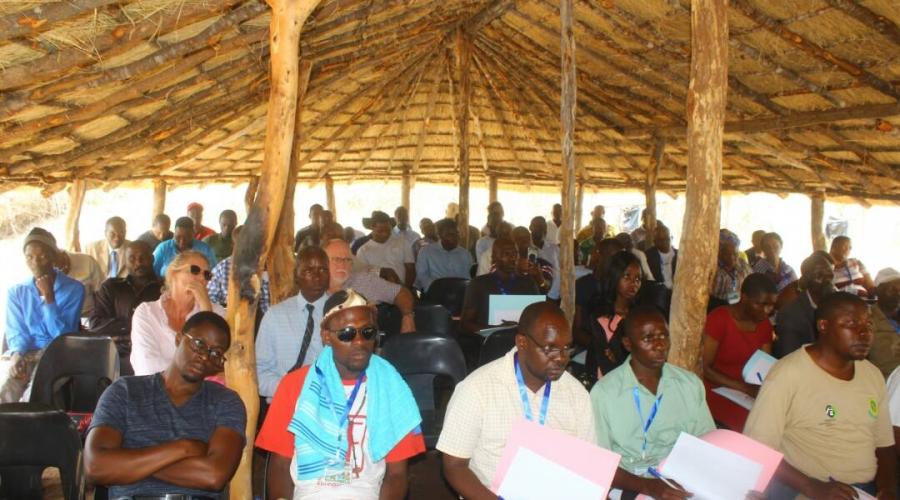TFCA Community Exchange Forum in Chiredzi, Zimbabwe

The SADC TFCA Network members suggested that the GIZ/SADC Transboundary Use & Protection (TUPNR) programme should provide a window for learning exchanges on TFCA development for communities and partners. The programme took up this suggestion and launched the TFCA Peer-to-Peer Learning Fund in 2016. The fund aims to promote partnerships and cooperation between TFCAs, and facilitates the exchange of successful practices/ lessons learnt in TFCA development. The fund avails small amounts of funding to TFCA partners for learning initiatives within or between SADC TFCAs, such as study visits, workshops, shared training events, etc.
The first event supported through this fund was the TFCA Community Exchange Forum that took place in Muhlanguleni, Chiredzi, Zimbabwe, from the 13th to the 16th of November 2017. The Centre for Cultural Development Initiatives (CCDI), a Zimbabwean NGO, organised and hosted the event. It brought together community members / leaders, chiefs, government officials and academics from South Africa, Zimbabwe, Mozambique and Botswana - from the Great Limpopo, the Greater Mapungubwe and Kavango Zambezi (KAZA) Transfrontier Conservation Areas. During an exciting, fully packed two-day programme, the attendees exchanged experiences of living in a TFCA, especially in relation to the daily threat of wildlife to their communities. Another hotly discussed topic was the strengths and weaknesses of their respective community projects.
During the days of the exchanges bigger events unfolded in distant Harare reshaping the future Zimbabwe. The spirit of vivid exchange in Chiredzi was undeterred by that. A colourful medley of different languages, cultures and people, who came together from different parts of the region, and shared about a common experience, characterized the discussion. People living in and around TFCAs pondered about what TFCAs mean to them. Are they more to them than what is being discussed in all kinds of offices around the SADC-region? What benefits do they get, what is their future? What future will their children have within and through these TFCAs? Wildlife officials attending the event listened very attentively to these questions and concerns of the community representatives. It also showed that communities can make valuable contributions to the collective management of natural resources and that decisions do not need to be made without their involvement. The conclusion for a public - community dialogue is obvious - and not new. People understand better why TFCAs are important outcomes of seemingly remote political processes. Public officials learn about community concerns and constraints but also their strengths and motivation to be part of decisions shaping their future.
Stay tuned for more when we report about two more upcoming events later this year. We are preparing the support for a learning visit in the Greater Limpopo Trans frontier Park (GLTP) and a community journey from Zambia to Namibian conservancies.


